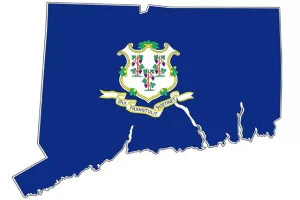North Carolina Walks Back Proposed “One-to-One Consent” Bill
***This blog was updated on May 8th to reflect the change to the definition of “prior express written consent” in the bill.***
As many anticipated after the 11th Circuit Court of Appeals vacated the Federal Communications Commission’s (FCC) One-to-one Consent rule in the IMC v. FCC case in January, it appears states may start taking matters into their own hands. North Carolina was the first out of the gate in April but has since revised its proposal—backing away from a strict one-to-one consent requirement after extensive advocacy by the Ecommerce Innovation Alliance (EIA).
It stands to reason such a potential movement would have begun with one of the 27 states whose Attorneys General joined a recent amicus brief (North Carolina was one of those states) filed in support of a petition requesting the 11th Circuit Court of Appeals reconsider the rule. (Notably, the FCC opposed these motions and the Court subsequently denied them.)
The Initial Definition of “Prior Express Written Consent” Mirrored the FCC Rule
As initially proposed, the term “prior express written consent” (replacing “express invitation or permission” throughout the statute) borrowed heavily from the FCC’s One-to-one Consent rule. The proposed definition would have required prior express written consent for a call or text to be:
- To a single person;
- Obtained only after clear and conspicuous disclosure that the telephone subscriber will receive future calls on behalf of a specific seller;
- Effective if the form of signature is recognized as a valid signature under applicable federal or State law, and
- Nontransferable.
As written, this could have significantly impacted lead generation even further, raising the possibility that consent would have to be given directly to the seller, not to a lead generator who then passes it along, meaning a consumer would have to be matched to a seller to whom the consumer gives direct consent.
Updated Definition
As noted, however, the North Carolina Legislature has dropped this definition in favor of language that more closely aligns with the TCPA. The revision follows extensive advocacy by the EIA, which testified before the House Judiciary 3 Committee to raise concerns about the original 1:1 consent language. Their efforts were instrumental in shifting the bill toward a more practical and familiar consent framework.
The new definition of prior express written consent is:
An agreement that satisfies all the following conditions:
- It is in writing.
- It bears the signature of the person called that clearly authorizes the seller to deliver or cause to be delivered to the person called telephone solicitations. The term ‘signature’ includes an electronic or digital form of signature, to the extent that such form of signature is recognized as a valid signature under applicable federal law or State law.
- It includes the telephone number to which the signatory authorizes such telephone solicitations to be delivered.
- It includes a clear and conspicuous disclosure informing the person signing both of the following:
- By executing the agreement, such person authorizes the seller to deliver or cause to be delivered to the signatory telephone solicitations.
- The person is not required to sign the agreement (directly or indirectly) or agree to enter into such an agreement as a condition of purchasing any property, goods, or services.
Other Proposed Provisions
HB 936 also proposes:
- Replacing the terms “Automatic dialing and recorded message player” and “Unsolicited telephone call” with:
- “Robocall” – defined to include calls using artificial or prerecorded voices and spam/scam text messages sent via messaging apps (so think, WhatsApp, Telegram, etc.)
- “Robocaller” – the person or entity initiating such robocalls.
- Adding “robocalls” into the scope of existing call time restrictions, clearly prohibiting such calls before 8:00 AM or after 9:00 PM.
- New consumer protection provisions that prohibit:
- Use of misleading caller ID information,
- Impersonation of government officials,
- Threats, intimidation, or use of profane language during calls.
Exemptions Maintained
The bill would retain key exemptions under existing law, including those for Established Business Relationships (EBR) and tax-exempt nonprofit organizations.
Enforcement
The North Carolina Attorney General would retain enforcement authority, including the ability to investigate complaints and bring civil actions. But, under the bill, if a single robocall violates multiple provisions of the law, penalties may be assessed for each individual violation, potentially compounding the legal exposure from a single call. The new version of the bill also retains a rebuttable presumption that anyone with a North Carolina area code is a state resident—a measure common in state mini-TCPA laws of late.
What’s Next – and What to Watch
While the latest version of HB 936 is notably more measured than the original draft, it may not be wise for businesses to assume the 1:1 consent fight is over. Other states—especially those that supported the FCC’s rule—may still propose their own versions of stricter consent frameworks. North Carolina’s reversal may slow the trend but may not stop it. The current version of HB 936 now moves to the North Carolina Senate. If enacted, it would take effect October 1, 2025.
CompliancePoint has a team of marketing compliance professionals who can help ensure your outreach campaigns comply with the TCPA, TSR, and all applicable state laws. Contact us at connect@compliancepoint.com to learn more about our services.
Finding a credible expert with the appropriate background, expertise, and credentials can be difficult. CompliancePoint is here to help.





